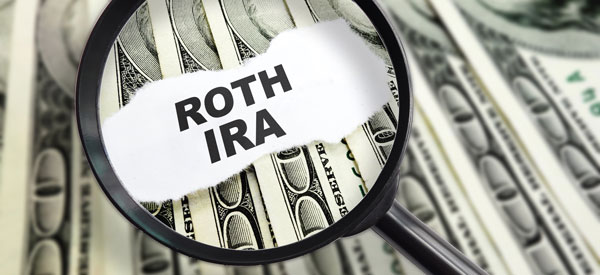I get asked this question almost every week. Roth IRAs come along with a number of unquestionable benefits, many of which have caused financial experts to consider the account one of the most effective vehicles for retirement planning in the modern age.
Does it make sense to take your traditional IRA and convert it into a Roth IRA? That depends upon your circumstances—read on to learn more, and consider asking me or another expert to help answer questions about your personal financial situation.
Traditional IRA vs. Roth IRA: The Differences
Aside from certain limitations (You might be subject to income restrictions if you’re involved in an employer-sponsored 401(k)), the money you place in a traditional IRA will very likely be tax-deductible. There’s seldom a case for making nondeductible contributions to a traditional IRA, as earnings will inevitably be taxed at a higher rate upon withdrawal. It’s an account that many people still entertain for one reason or another, but a Roth IRA is a better bet for the majority of those approaching retirement age.
With a Roth IRA, none of the money contributed to the account is tax-deductible. Once you reach the age of 59½ and have held the account for at least five years, however, you may then withdraw from the account without having to worry about paying any income tax on the funds. This is the major reason why a Roth IRA is preferred by many who are nearing retirement, as it can serve as a veritable tax-free “safety net” well into the golden years.
Should I Consider a Roth IRA Conversion?
If you’re interested in converting a traditional IRA into a Roth IRA, you’re in luck—the conversion can be made at any time. Limits were once placed upon high-income taxpayers hoping to convert, but these were lifted in 2010, offering the conversion opportunity to anyone.
So, why convert? Once your money has entered a Roth IRA, you receive all of the same benefits you would if the account was a Roth IRA to begin with—tax-free withdrawals and tax-deferred growth being the big ones.
All this said, it’s important to understand that Roth IRA conversions typically come with a price. Traditional IRAs are funded with money that has not been taxed, which means you’ll be required to pay taxes on any money in the account that you’d like to convert—the numbers could be intimidating at face value. If you estimate that your tax rates will be higher once you enter into retirement, paying the upfront cost will be more than worth your while. Otherwise, you may be better off sticking with the traditional IRA to avoid the hefty tax-related fees.
Whether you have a traditional IRA already or are shopping for a new savings account, the benefits of the Roth IRA are undeniable. To avoid any potential missteps, be sure to work with a trusted financial advisor who can help you decide which account is right for you.
